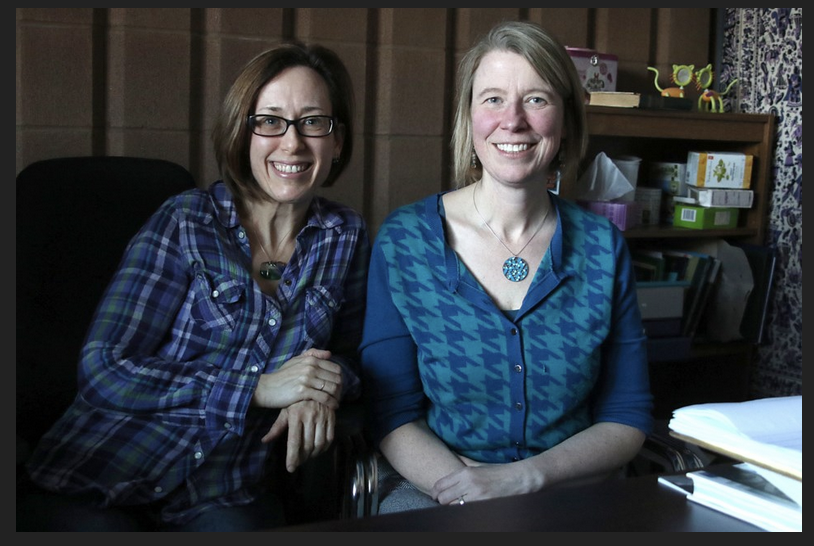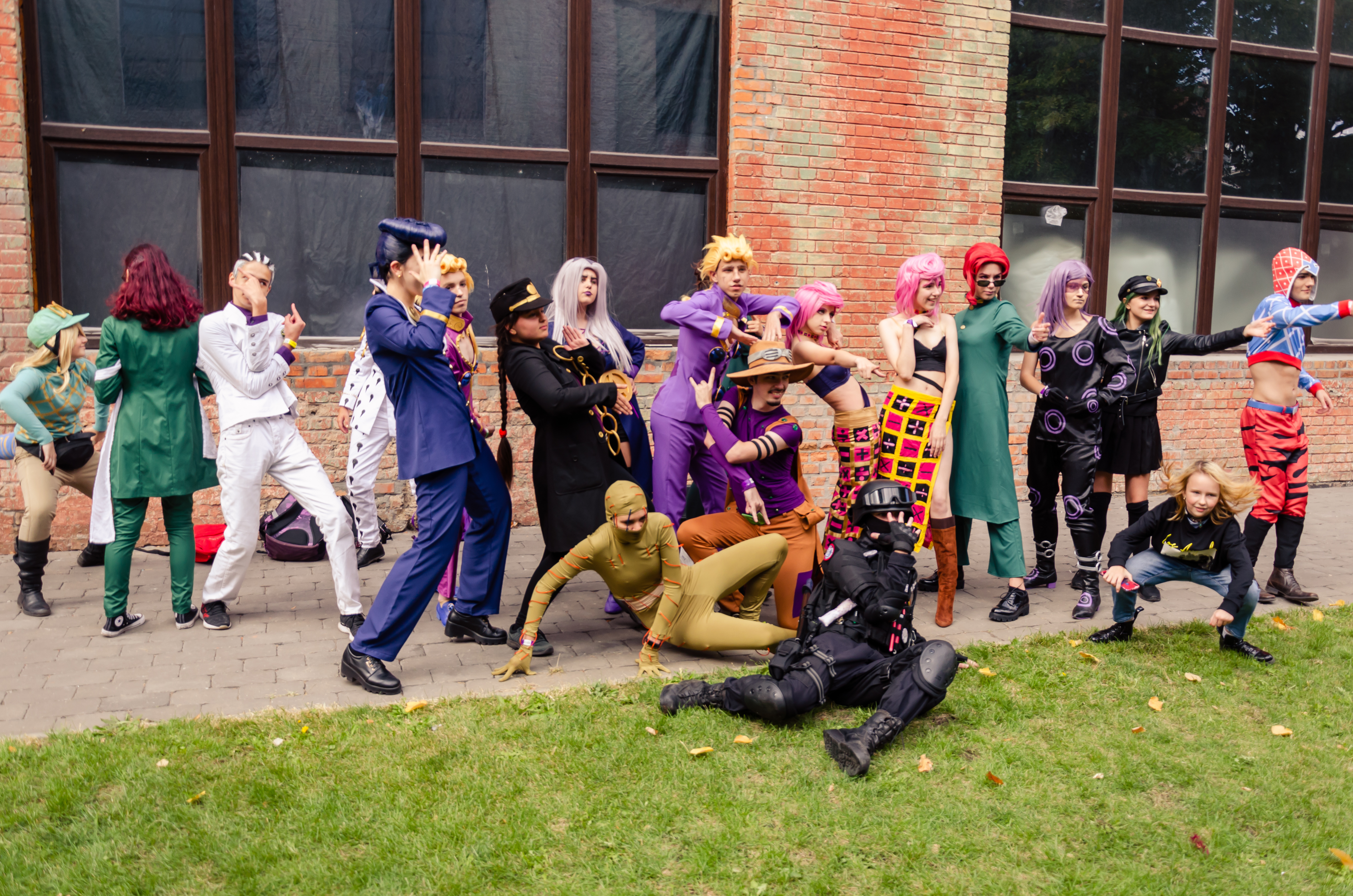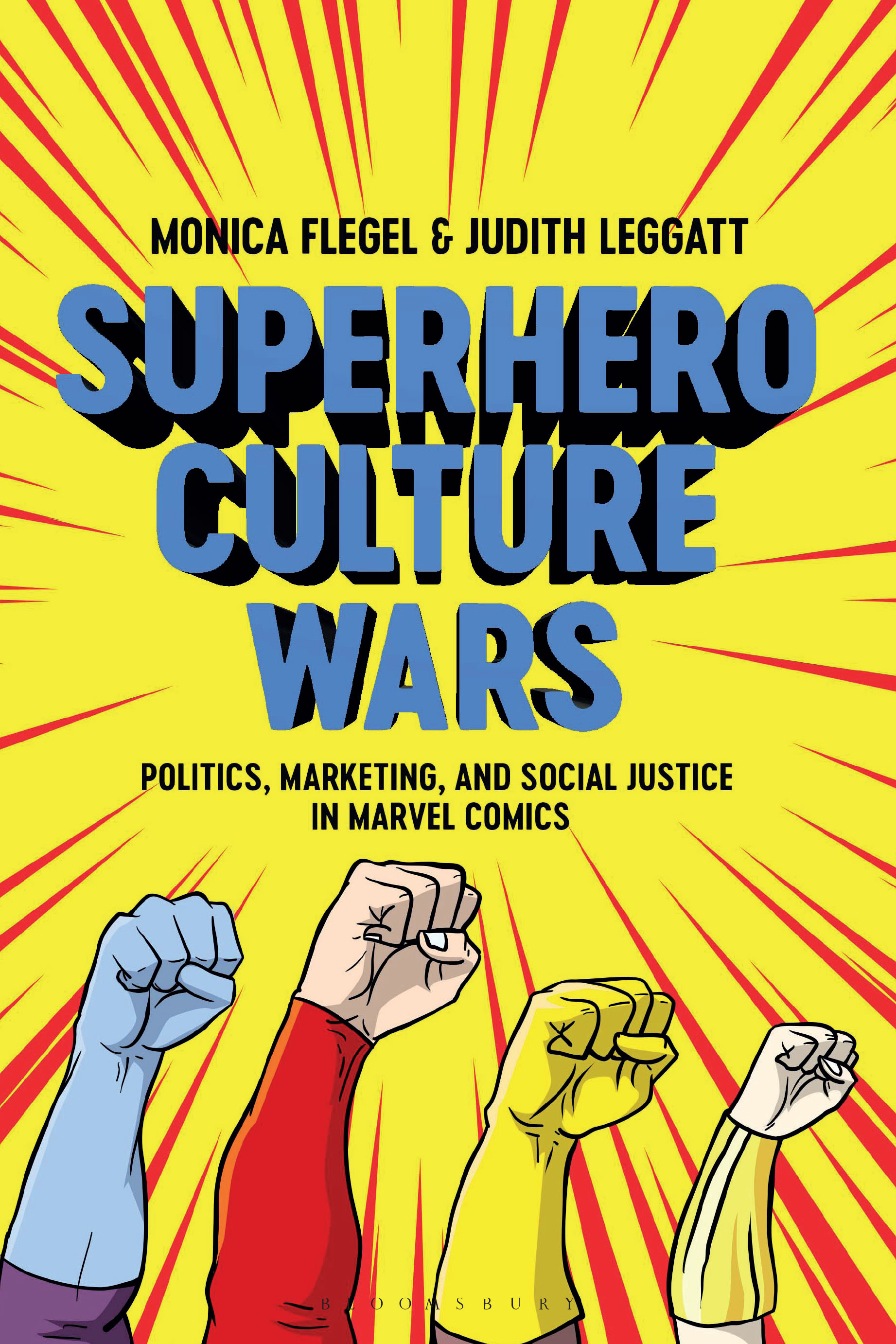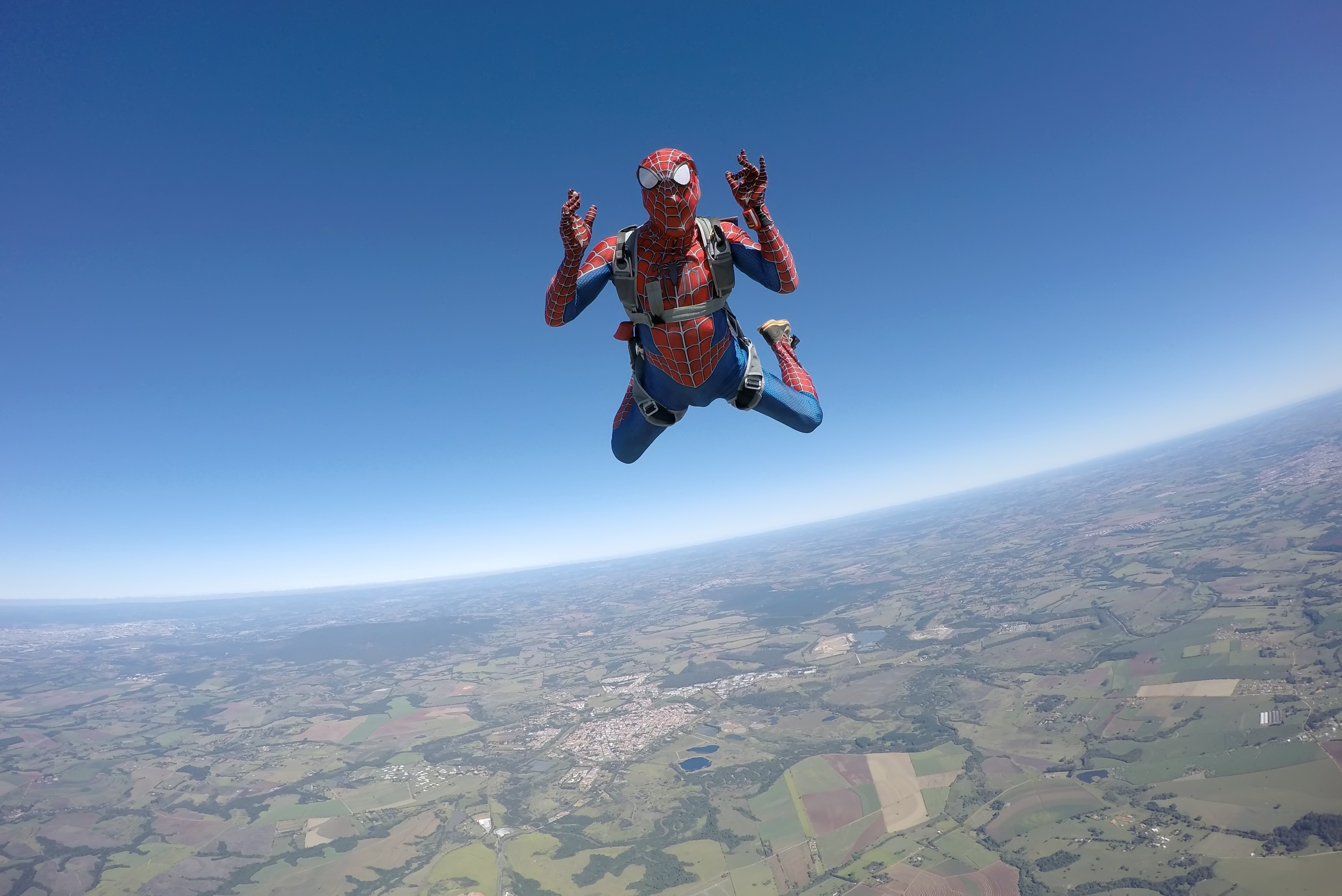Superhero movies are blockbuster events that thrill fans around the world and, for many of us, comic books are a cherished part of our childhoods.
Since the 2000s, though, our love of comic book characters has morphed into a battlefield over who has the right to be a superhero. This is especially the case with characters created by Marvel Comics. The company's changes to several well-established characters, and the introduction of new characters, has led to a social media backlash that's seeped out into the real world.

Dr. Monica Flegel and Dr. Judith Leggatt have been collaborating on research projects for several years.
Two Lakehead English professors and researchers—Dr. Monica Flegel and Dr. Judith Leggatt—explore what's going on in their book Superhero Culture Wars: Politics, Marketing, and Social Justice in Marvel Comics. Both Dr. Flegel and Dr. Leggatt have a longstanding fascination with comics.
"Monica and I are huge nerds and big comic book fans," Dr. Leggatt says. "My field of research is Indigenous literature and that includes the study of Indigenous comics, Indigenous futurism, and Indigenous speculative fiction."
Dr. Flegel, Lakehead's 2022 Distinguished Researcher in the Social Sciences and Humanities, takes a similarly creative approach. "I teach the Introduction to Popular Culture course and a fan and media studies course," she says. "I've also done research on fan fiction with Dr. Jenny Roth in Lakehead's Women's Studies department."
The Origins and Expansion of the Marvel Universe
Superhero Culture Wars focuses on Marvel's efforts to make their comics more representative of the human experience. One way they've accomplished this is by taking some of their main characters—like Thor and Captain America—and reimagining them as characters who are female, people of colour, or queer.
"We're looking at how these changes are triggering a fear of loss of status in people who've traditionally held power," Dr. Leggatt says.
Thor, Captain America, Wolverine, and the Hulk are a few of the characters who inhabit the Marvel Universe.
"The Marvel Universe really started when Stan Lee and Jack Kirby created teams like the Fantastic Four and the Avengers in the early 1960s," Dr. Leggatt says. "All these characters live in the same universe and go into and out of each other's stories."
Dr. Flegel points out that this universe also has continuity. "It's been one unbroken story told across multiple timelines."
Marvel Comics has set itself apart by tackling real-world issues like racism and violence.
"Part of Marvel's branding is that they reflect the world outside your window," Dr. Flegel says. "In the first issue of Captain America in 1941, for instance, Captain America punches Hitler in the face. Marvel has generally aligned itself, through its storytelling, as centrist to liberal in its outlook."
Superheroes exploded in popularity after the Second World War. Dr. Flegel notes that "they're complicatedly tied to fascism. Robert Jewett and John Shelton Lawrence call it the "Captain America Complex;" essentially, superheroes fighting for democracy using non-democratic methods. This means there's an element of 'might makes right' to superheroes, which can appeal to people who want an authoritarian leader to solve society's problems."
The Comicsgate Controversy
 "Comics were marketed to children, Dr. Flegel says, "but starting in the 1960s, some underground comics pitched themselves to college students and other adult readers. Marvel expanded this strategy in the 70s, 80s, and 90s." Photo Credit: iStock/Volodymyr Zakharov
"Comics were marketed to children, Dr. Flegel says, "but starting in the 1960s, some underground comics pitched themselves to college students and other adult readers. Marvel expanded this strategy in the 70s, 80s, and 90s." Photo Credit: iStock/Volodymyr Zakharov
Many fans have welcomed the updating of characters; however, in 2017, a backlash against diverse comics and their supporters erupted on social media. It became an online crusade in which fans opposed to diversity mounted a substantive campaign against creators by using social media to harass and even doxx them (releasing an individual's personal information, such as their home address, online).
"Comicsgate is a campaign against alleged "forced" diversity when, in fact, those complaints stem from readers who identify as "real" fans—and generally as older, white, and male—who feel they're being pushed out," Dr. Leggatt says.
"Although it's not entirely about demographics," Dr. Flegel says. "It's about some fans, and a few creators, who want traditional storylines and characters. Comicsgate is one of many ongoing culture wars being waged against diversity in comics, sci fi, and popular culture."
Nostalgia Can be a Double-edged Sword

Dr. Leggatt hopes that Superhero Culture Wars will spur people to think about how comics fit into the zeitgeist and larger social discourse of our current era.
Why does integrating characters that embrace all of humanity generate such rage?
"Some fans think, 'If my Captain America is being replaced, then so am I,'" Dr. Leggatt says. "It's a fear of loss of identity."
"The deep attachment to characters like Captain America, who's been around since the 1940s is another factor," Dr. Flegel says. "For lifelong fans it can feel like an attack on something important to them—a kind of cultural vandalism. In addition, there are bad actors, including Russian bots, deliberately stoking the fires of hatred in many of these fan-based conflicts."
Both Dr. Flegel and Dr. Leggatt believe that nostalgia is crucial to understanding the current comic book culture wars.
"Nostalgia is a very powerful emotion, and it's almost exclusively deployed by the right," Dr. Flegel says. "Politically, it's something we have to grapple with. How do we use nostalgia constructively?"
There are two distinct types of nostalgia, according to theorist Svetlana Boym: 'reflective nostalgia' that appreciates the past, but also sees how it needs to change, and unthinking 'restorative nostalgia' that yearns for things to stay exactly the same—as well as how they never were—in an effort to uphold an idealized version of the past.
Some might ask why Marvel didn't just create entirely new characters instead of changing existing ones.
"I think that innovation is important," Dr. Leggatt says. "The Marvel Universe is a 60-year-old-story, and it can get stale. Transformed characters with completely different worldviews can revitalize storytelling. And, since the 60s, Marvel has created very few new characters who've captured the public imagination, Deadpool and Kamala Khan are exceptions."
Dr. Leggatt and Dr. Flegel hope the shift to greater equality will continue.
"Marvel is doing a good job of hiring diverse writers and creating diverse stories, but diversity can ebb and flow," Dr. Flegel cautions.
"And there's always been diverse fans of comics—women, people of colour—it's just that their needs weren't being served," she says.


